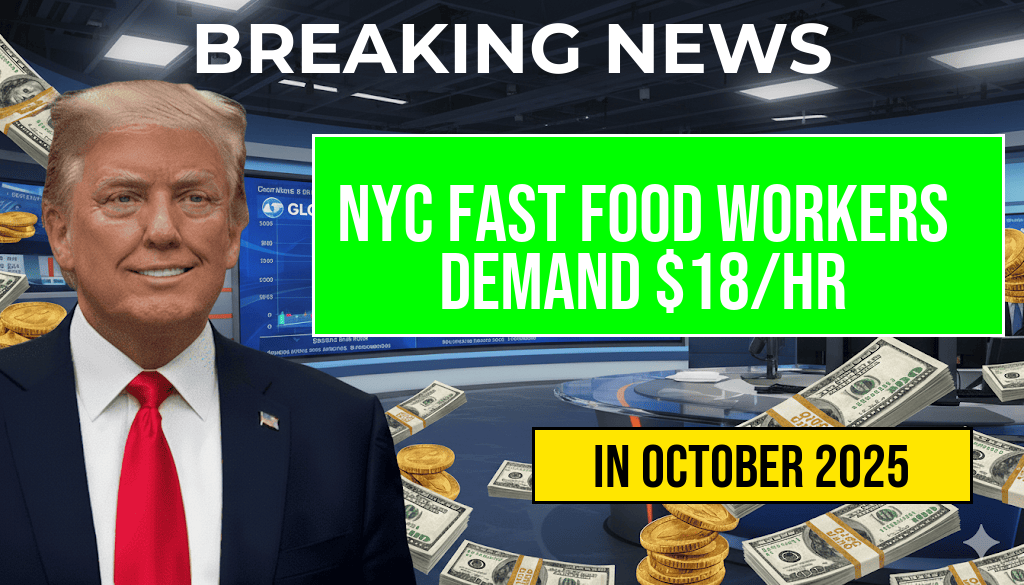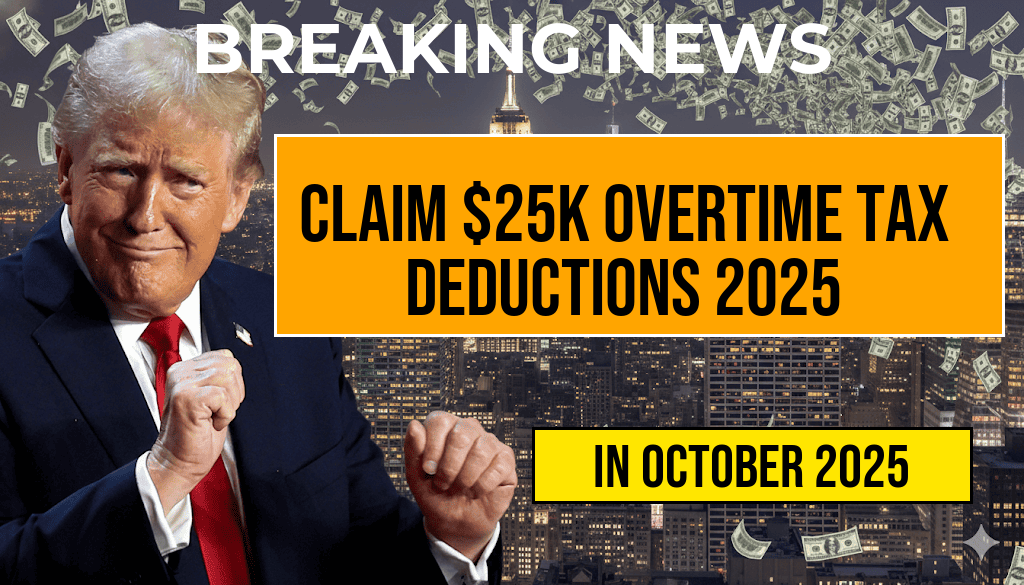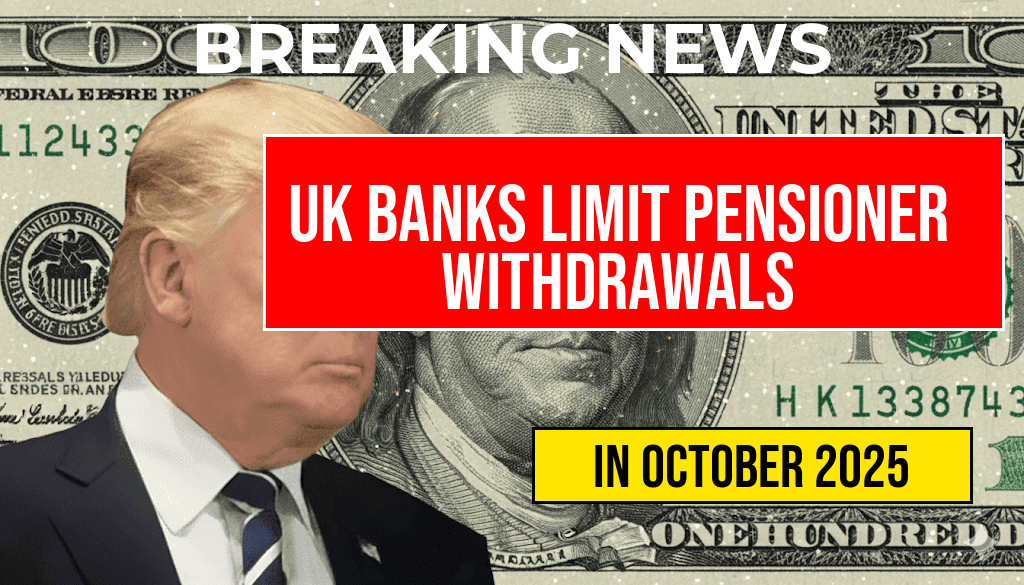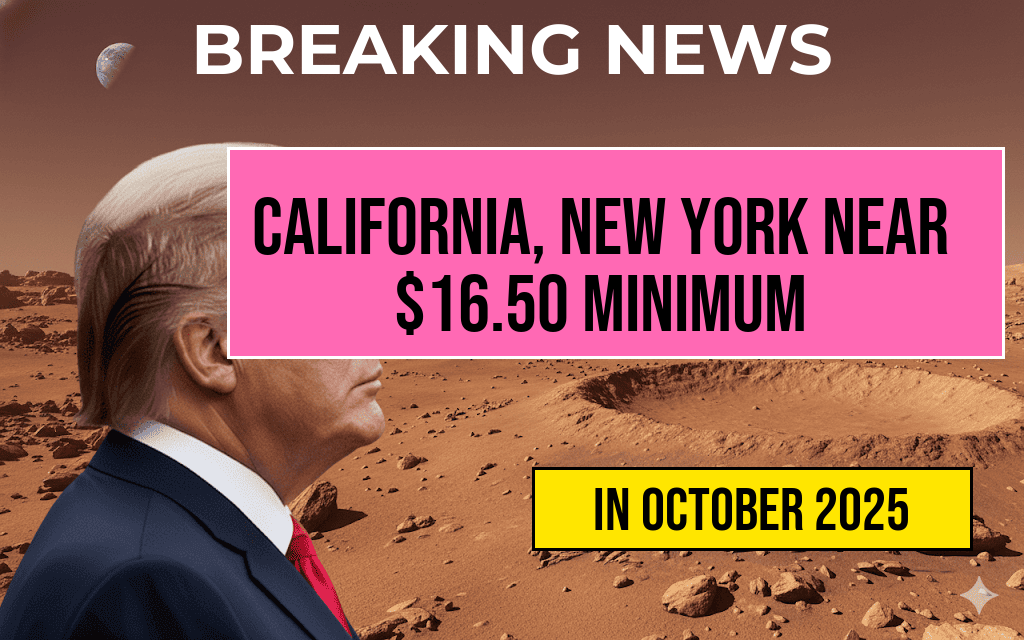Fast food workers across New York City are stepping up their efforts to secure an $18 an hour minimum wage, citing rising living costs and demanding better compensation for their essential roles. Organized protests, sit-ins, and petitions have surged in recent weeks, highlighting the growing pressure on local policymakers and major restaurant chains to address wage disparities in the service sector. The movement, driven largely by hourly employees, aims to bridge the gap between existing pay scales and the city’s escalating expenses, including housing, transportation, and healthcare. As the campaign gains momentum, industry leaders and city officials find themselves navigating complex debates over fair wages, economic recovery, and the future of fast food employment in New York City.
Background and Context of the Wage Campaign
New York City’s fast food industry has long been characterized by low wages, high turnover, and challenging working conditions. According to data from the U.S. Department of Labor, the federal minimum wage has stagnated at $7.25 since 2009, but many states and cities have implemented higher local minimums to reflect regional economic realities. New York State’s current minimum wage stands at $15 an hour for large employers, with smaller businesses often paying less. However, workers and advocates argue this figure remains insufficient given the city’s cost of living, which has outpaced wage growth for many employees.
In recent years, movements advocating for a $15 minimum wage gained traction nationally, culminating in legislation and ballot measures in numerous jurisdictions. Despite these advances, fast food workers in New York City contend that the pace of wage increases has not kept up with inflation or the increasing expenses faced by low-income households. The push for an $18 an hour minimum wage represents a strategic effort to push beyond existing benchmarks, aiming to secure a more livable income for thousands employed in the sector.
Details of the Campaign and Key Stakeholders
Organizers and Worker Demands
- Implement an $18/hour minimum wage for all fast food employees in NYC.
- Improve working conditions, including scheduling stability and access to benefits.
- Establish pathways to unionization and collective bargaining.
The campaign is led by a coalition of worker advocacy groups, including New York City Workers’ Alliance and local chapters of national unions. Participants emphasize that their demands are rooted in the rising costs of rent, transportation, and healthcare, which have eroded the real income of many fast food workers over the past decade.
Industry Response and Economic Considerations
Major fast food corporations operating in NYC, such as McDonald’s, Burger King, and Domino’s, have expressed cautious responses. While some corporate representatives acknowledge the importance of fair wages, others argue that significant wage hikes could lead to increased prices for consumers or potential job cuts. According to industry analyses cited by Forbes, increased labor costs could prompt automation or reduced staffing hours, impacting service quality and employment levels.
| Aspect | Potential Effect |
|---|---|
| Employee earnings | Increase of approximately 20-25% for many workers |
| Fast food prices | Possible rise of 3-5% to offset higher wages |
| Employment levels | Potential stabilization or slight decrease depending on automation adoption |
Political and Public Responses
City officials have acknowledged the importance of supporting low-wage workers but remain divided over the feasibility of implementing such a wage increase. Some council members advocate for phased approaches or targeted increases, citing concerns about economic stability and small business viability. Others, including labor advocates and progressive politicians, argue that a living wage is fundamental to reducing inequality and fostering economic growth from the ground up.
The public sentiment appears largely sympathetic to workers’ demands. Recent polls indicate that a majority of NYC residents support raising the minimum wage for fast food employees, viewing it as a step toward addressing income disparity. Community organizations are mobilizing to rally support, emphasizing the role of fast food workers as vital contributors to the city’s economy.
Legal and Policy Implications
Legal avenues to enforce wage increases include local legislation, executive orders, and collective bargaining agreements. The city’s Human Rights Law provides mechanisms for wage enforcement and anti-discrimination protections, but broader legislative action remains uncertain amid political debates.
Advocates are also exploring the potential for ballot initiatives to codify the $18 minimum wage, mirroring successful campaigns in other jurisdictions. If successful, such measures could set precedents for nationwide efforts to adjust minimum wages in line with regional living costs.
Looking Ahead
As negotiations continue, the fast food workers’ campaign in NYC highlights a broader national conversation about fair wages, economic justice, and the future of low-wage employment. While some industry leaders warn of economic repercussions, many workers and advocates remain steadfast, emphasizing that a living wage is essential for economic stability and dignity. The coming months will determine whether the city’s policymakers will respond to these demands with concrete action or whether the movement will face significant hurdles amid economic uncertainties.
Frequently Asked Questions
What is the main goal of the New York fast food workers’ campaign?
The primary goal of the campaign is to advocate for a $18 an hour minimum wage for fast food workers in New York City, aiming to improve their wages and working conditions.
Why are fast food workers in NYC demanding a higher minimum wage?
Fast food workers are demanding a higher minimum wage to better support their livelihoods, reduce economic inequality, and ensure fair compensation for their hard work in a competitive urban environment.
How might the campaign impact fast food workers in NYC?
If successful, the campaign could lead to increased wages for fast food workers, improved working conditions, and greater recognition of their contributions to the local economy.
What strategies are the workers using to push for this wage increase?
Workers are organizing protests, petitions, and engaging in advocacy efforts to raise awareness among the public and policymakers about the need for a $18 minimum wage.
What is the current minimum wage for fast food workers in NYC, and how does it compare to the proposed $18?
The current minimum wage for fast food workers in NYC varies but is generally less than $18 an hour. The campaign aims to raise this wage to ensure fair pay that aligns with the cost of living and economic needs.








